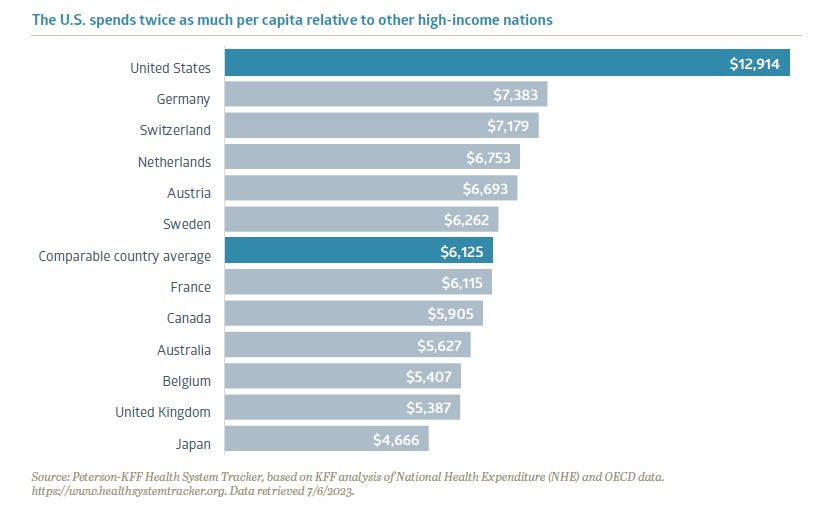Intellectual curiosity, accountability, and a strive for excellence are hallmarks of Bailard’s equity teams. Our independence, along with being women-led and our broad employee ownership, allow innovation to flourish among a diversity of ideas and backgrounds. Our long-tenured and highly-skilled teams create and continually refine specialized and differentiated equity strategies where we perceive we have a definable advantage, in both U.S. and international equity markets. Each strategy features a portfolio management team with the support and resources of the broader investment team to harness deep style and sector expertise, and advanced quantitative acumen.
U.S. Equity Strategies
Technology
Delivering broad, impactful investment opportunities through a high-conviction portfolio of technology-focused companies.
The Bailard Technology Strategy delivers a high-conviction, durable portfolio of technology-focused companies. We apply fundamental research and systematic methodologies to identify opportunities across two key technology segments: core growth and rising stars. The Strategy captures broad, impactful investment opportunities across the globe, including advances in automobile electrification, factory automation, AI and machine learning, e-commerce, digital payments, wireless services, Internet of Things (IoT), mobile devices, hyperscale data centers and high-performance computing, e-sports, online entertainment, remote work, business intelligence, and workforce optimization.
Performance
| Total Return, As of 3/31/25 | Quarter | YTD | 1 Year | 3 Years | 5 Years | 10 Years |
|---|---|---|---|---|---|---|
| Gross of Fees | -9.26% | -9.26% | 1.24% | 13.42% | 21.90% | 18.25% |
| Net of Fees | -9.35% | -9.35% | 0.83% | 12.97% | 21.42% | 17.64% |
| Morningstar U.S. Open End Technology, Net | -9.98% | -9.98% | 0.84% | 3.71% | 14.80% | 13.22% |
| Lipper Science and Technology Fund Index, Net | -10.8% | -10.8% | 0.52% | 6.17% | 17.04% | 14.47% |
| S&P North American Technology Index | -11.43% | -11.43% | 4.51% | 12.17% | 21.42% | 19.06% |
Past performance is no indication of future results. All investments involve a risk of loss. Net of fee performance is calculated by netting down the gross return by actual management fees as of the date paid from each account.
The integration of ESG considerations as part of the Strategy may result in the exclusion of securities that might otherwise merit investment, potentially resulting in lower returns than a similar investment strategy without such considerations. Investors can differ in their views of what constitutes positive or negative ESG characteristics. As a result, the strategy may invest in issuers that do not reflect the ESG beliefs and values of any particular investor.
In evaluating a security or issuer based on ESG considerations, we are dependent upon certain information and data from third-party providers of ESG research, which may be incomplete, inaccurate, or unavailable. As a result, there is a risk that we may incorrectly assess a security or issuer. We do not make any representation or warranty, express or implied, with respect to the fairness, correctness, accuracy, reasonableness, or completeness of such ESG assessment. There may be limited availability of ESG data in certain sectors, as well as limited availability of investments with positive ESG assessments in certain sectors. Our evaluation of ESG criteria is subjective and may change over time.
There are risks involved in investing, including the risk of loss and the risk that the market value of your investments will fluctuate as the stock market fluctuates. Investments in a particular style may underperform other styles of investing or the overall market. Please see the respective strategy’s fact sheet above for additional important risk and performance disclosures, as well as at the bottom of this page.
Portfolio Managers
White Paper: “AI Is Moving Fast—And the Winners Might Not Be Who You Expect”
AI is evolving fast, and so is the way investors are approaching it. In his latest white paper, Dave Harrison Smith, CFA—EVP, Domestic Equities—shares where he sees the shift in AI investing, from buildout to opportunity. Read on for his full analysis:
Nasdaq TradeTalks, “Why the Potential in Cybersecurity Lies in AI’s Ability to Recognize Patterns and Optimize Threat Detection”
Dave Harrison Smith, CFA, Head of Technology Investing at Bailard, Alex Gunz, Fund Manager at Heptagon Capital, and Alastair Paterson, Co-Founder & CEO of Harmonic Security join Jill Malandrino on Nasdaq TradeTalks to discuss why the potential in cybersecurity lies in AI’s ability to recognize patterns and optimize threat detection.
Cheddar, “Fed Rate Cuts: What Will 25-50 Basis Points Mean for Tech and Markets?”
So proud to see Dave Harrison Smith, CFA, representing Bailard on Cheddar this week! From Fed Rate cuts and inflation to semiconductors and cybersecurity, Dave covered all the hottest topics in tech. Don't miss his insightful interview:
Technology Opportunities
In the technology space where relatively unknown players can become the next market leaders, this strategy provides a concentrated long biased equity portfolio of emerging, disruptive, and high-growth technology companies.
The Bailard Technology Opportunities Strategy is a concentrated portfolio of our highest conviction ideas in disruptive, high-growth technology companies deploying next generation products and services with the capacity to revolutionize industries worldwide. Target investments are companies that we believe demonstrate rapid product adoption and have large addressable markets and expertise in management and operational efficiency. The Strategy additionally seeks to exploit alpha opportunities by selling short positions in disrupted and maturing technology companies.
Performance
| Total Return, as of 3/31/2025 | Quarter | YTD | 1 Year | 3 Years | 5 Years | Since Inception (June 2019) |
|---|---|---|---|---|---|---|
| Bailard Composite Gross of Fees | -12.83% | -12.83% | -11.06% | -0.82% | 4.08% | 4.92% |
| Bailard Composite Net of Fees & Incentive Allocation | -13.06% | -13.06% | -12.18% | -3.82% | 0.33% | 1.53% |
| Russell 2000 Growth Index | -11.12% | -11.12% | -4.87% | 0.76% | 10.75% | 6.22% |
| Russell 2000 Growth Technology Index | -21.20% | -21.20% | -13.87% | -1.44% | 11.02% | 6.28% |
Past performance is no indication of future results. All investments involve a risk of loss. Net performance is calculated using a 1% model annual investment management fee deducted monthly, and a 20% incentive allocation (subject to a 5% hurdle rate) accrued monthly and deducted annually. There are risks involved in investing, including the risk of loss and the risk that the market value of your investments will fluctuate as the stock market fluctuates. Investments in a particular style may underperform other styles of investing or the overall market. Please see the respective strategy’s fact sheet above for additional important risk and performance disclosures, as well as at the bottom of this page.
Portfolio Manager
White Paper: “AI Is Moving Fast—And the Winners Might Not Be Who You Expect”
April 2, 2025
AI is evolving fast, and so is the way investors are approaching it. In his latest white paper, Dave Harrison Smith, CFA—EVP, Domestic Equities—shares where he sees the shift in AI investing, from buildout to opportunity. Read on for his full analysis:
Pensions & Investments, “AI applications: When can investors feel the impact?”
December 23, 2024
LLMs. Co-pilots. Agents. Two years after ChatGPT took the world by storm, the hype behind artificial Intelligence remains palpable. Major tech companies are pouring billions into sparkling new infrastructure for AI workloads. Utility companies in areas with dense data centers are seeing revenues and power consumption soar. Yet, outside of semiconductor and infrastructure players, few companies have seen significant revenue from AI products. Investors are increasingly left asking: When will these massive capital investments start benefiting software companies? What’s causing the delay?
Nasdaq TradeTalks, “Why the Potential in Cybersecurity Lies in AI’s Ability to Recognize Patterns and Optimize Threat Detection”
October 21, 2024
Dave Harrison Smith, CFA, Head of Technology Investing at Bailard, Alex Gunz, Fund Manager at Heptagon Capital, and Alastair Paterson, Co-Founder & CEO of Harmonic Security join Jill Malandrino on Nasdaq TradeTalks to discuss why the potential in cybersecurity lies in AI’s ability to recognize patterns and optimize threat detection.
Small Cap Value
Identifying behavioral anomalies and applying broad spectrum risk controls in our pursuit of untapped opportunities in the underfollowed – small and micro cap space.
Bailard’s Small Cap Value Strategy uses proprietary behavioral finance techniques and extensive financial, non-financial and structural risk controls to identify investment opportunities and avoid pitfalls. We use a disciplined, repeatable process specifically designed for the unique nature of the small cap stock universe, with thousands of companies and little concentration. Bailard enhanced the investment team and process in 2019 by adding expertise and adopting ESG Capture® scoring methodology tailored to the small and micro cap stock universe, where there is limited sustainable and responsible investing data and vendor score coverage. Our ESG Capture® process allows us to assess and mitigate exposure to risks including environmental hazards, poor corporate governance, and social issues such as worker satisfaction.
Performance
| Total Return, As of 3/31/25 | Quarter | YTD | 1 Year | 3 Years | 5 Years | 10 Years |
|---|---|---|---|---|---|---|
| Gross of Fees | -6.89% | -6.89% | 0.52% | 3.47% | 19.74% | 7.72% |
| Net of Fees | -6.98% | -6.98% | 0.14% | 3.08% | 19.30% | 7.31% |
| Russell 2000 Value Index | -7.74% | -7.74% | -3.13% | 0.04% | 15.29% | 6.06% |
Past performance is no indication of future results. All investments involve a risk of loss. Net of fee performance is calculated by netting down the gross return by actual management fees as of the date paid from each account.
The use of environmental, social, and governance (ESG) screens may exclude certain investments and result in performance that differs from strategies not using such screens. ESG assessments are inherently subjective, and investors may disagree on what constitutes favorable ESG characteristics. We rely on third-party ESG data, which may be incomplete or inconsistent, and our application of ESG criteria may not always align with an investor’s values. Our evaluation of ESG criteria may change over time.
There are risks involved in investing, including the risk of loss and the risk that the market value of your investments will fluctuate as the stock market fluctuates. Investments in a particular style may underperform other styles of investing or the overall market. Please see the respective strategy’s fact sheet above for additional important risk and performance disclosures, as well as at the bottom of this page.
Portfolio Managers
MarketWatch, “This small-cap ETF drew investors after Fed nod to rate cuts. Can it keep up?”
Thomas J. Mudge III, CFA, Bailard’s Director of Equity Research, shares his insights in a recent MarketWatch story by Isabel Wang. Discover the relationship between interest rates and the Small Cap ETF market. Read more, here:
Does Company Size Bias in ESG Scores Impact Small Cap Investors?
While it is well known that ESG scores tend to have a size bias which favors the larger companies among the universe of large capitalization stocks – does this bias exist in the small cap space?
Broad Impact
True to its impact namesake, this strategy offers a portfolio of companies we believe will have a net positive impact on society and the planet while providing a return on capital.
Bailard’s Broad Impact Strategy seeks long-term capital appreciation with a portfolio best positioned for the world into which we are heading. Through targeted investment in public companies, this benchmark agnostic portfolio is intended to have a net positive impact on society over the short-, medium-, and/or long-term. We invest in companies we believe are leaders on inclusion and sustainability through business practices, products, and/or services. The Strategy includes companies identified by Bailard’s investment research team in the macro-themes of Inclusion and Sustainability, and 22 underlying micro-themes.
Portfolio Managers
The Bailard Broad Impact Strategy is only suitable for clients that can handle the risk of investing in large, small, and micro cap equities, and may include companies in disruptive and transformative industries. Small and micro companies may face greater economic cycle risk, credit risk, geographic risk, product, and customer concentration risk than that faced by larger companies. Small cap and—to a greater extent—micro cap stocks are more volatile and less liquid than larger cap stocks and may be more difficult to trade.
The application of various environmental, social and governance screens as part of a socially responsible investment strategy may result in the exclusion of securities that might otherwise merit investment, potentially resulting in lower returns than a similar investment strategy without such screens or other strategies that use a different methodology to exclude issuers or evaluate ESG criteria.
Investors can differ in their views of what constitutes positive or negative ESG characteristics. As a result, the strategy may invest in issuers that do not reflect the ESG beliefs and values of any particular investor.
In evaluating a security or issuer based on ESG criteria, we are dependent upon certain information and data from third party providers of ESG research, which may be incomplete, inaccurate or unavailable. As a result, there is a risk that we may incorrectly assess a security or issuer. There is also a risk that we may not apply the relevant ESG criteria correctly or that the strategy could have indirect exposure to issuers that do not meet the relevant ESG criteria used by the strategy. We do not make any representation or warranty, express or implied, with respect to the fairness, correctness, accuracy, reasonableness or completeness of such ESG assessment. There may be limitations with respect to availability of ESG data in certain sectors, as well as limited availability of investments with positive ESG assessments in certain sectors. Our evaluation of ESG criteria is subjective and may change over time.
The market value of an investment will fluctuate as securities markets fluctuate. There can be no assurance that this or any investment strategy will achieve its investment objectives. All investments have the risk of loss.
Value-Based Care: Aligning Interests for Patients, Providers & Payors
July 14, 2023
There’s an alternative to the traditional fee-for-service healthcare model. Ryan Vasilik, CFA, Equity Analyst, sheds light on the opportunities that abound with value-based care.
Corporate Engagement Update Q3 2023
July 11, 2023
Bailard’s approach to corporate engagement focuses on both the shareholder process and supporting other stakeholders working to improve disclosures on important environmental, social, and governance (ESG) issues.
COP 15: The Historic United Nations Biodiversity Conference
December 30, 2022
McKenzie Fulkerson-Jones, ESG Analyst, explains the key facets of the landmark agreement that emerged from the United Nations Biodiversity Conference.
Smart SRI US All Cap
Combining high responsible and sustainable investing standards with our proprietary ESG Capture® framework and portfolio optimization techniques to deliver a U.S. equity portfolio with a low tracking error to the Russell 3000 Index.
We employ this proprietary process of scoring responsible and sustainable attributes to uncover leaders and avoid laggards to help mitigate long-term portfolio risk. We also seek to avoid investments in fossil fuels, controversial weapons, and a number of products that adversely affect women, girls, and disadvantaged communities. This Smart SRI strategy invests in 75 – 100 stocks on average, diversified across industry sectors.
Performance
| Total Return, As of 3/31/2025 | Quarter | YTD | 1 Year | 3 Year | 5 Year | Since Inception (6/30/2018) |
|---|---|---|---|---|---|---|
| Gross of Fees | -5.19% | -5.19% | 6.25% | 7.07% | 17.11% | 11.31% |
| Net of Fees | -5.26% | -5.26% | 5.90% | 6.71% | 16.62% | 10.79% |
| Russell 3000 Index | -4.73% | -4.73% | 7.20% | 8.21% | 18.18% | 11.95% |
Past performance is no indication of future results. All investments involve a risk of loss. Net of fee performance is calculated by netting down the gross return by actual management fees as of the date paid from each account.
The integration of ESG considerations as part of the Strategy may result in the exclusion of securities that might otherwise merit investment, potentially resulting in lower returns than a similar investment strategy without such considerations. Investors can differ in their views of what constitutes positive or negative ESG characteristics. As a result, the strategy may invest in issuers that do not reflect the ESG beliefs and values of any particular investor.
In evaluating a security or issuer based on ESG considerations, we are dependent upon certain information and data from third-party providers of ESG research, which may be incomplete, inaccurate, or unavailable. As a result, there is a risk that we may incorrectly assess a security or issuer. We do not make any representation or warranty, express or implied, with respect to the fairness, correctness, accuracy, reasonableness, or completeness of such ESG assessment. There may be limited availability of ESG data in certain sectors, as well as limited availability of investments with positive ESG assessments in certain sectors. Our evaluation of ESG criteria is subjective and may change over time.
There are risks involved in investing, including the risk of loss and the risk that the market value of your investments will fluctuate as the stock market fluctuates. Investments in a particular style may underperform other styles of investing or the overall market. Please see the respective strategy’s fact sheet above for additional important risk and performance disclosures, as well as at the bottom of this page.
Portfolio Managers
Bailard Appoints Dave Harrison Smith, CFA, as Chief Investment Officer
July 1, 2025
Bailard is pleased to announce that, as of today, Dave Harrison Smith, CFA, has been promoted to Chief Investment Officer. He succeeds Eric Leve, CFA, who held the role for more than a decade and will continue with the firm as a portfolio manager, fully focused on international markets.
Country Indices Flash Report – June 2025
June 30, 2025
Tariff negotiations intensified as the July 9th reciprocal tariff deadline nears, though the Trump administration signaled flexibility on the cutoff for countries negotiating in “good faith.” The U.S. and China secured a high-level framework that included a key rare earths deal and a tariff truce extension to August 11th. Meanwhile, the UK finalized a 10% tariff rate after a threatened 27.5%; talks are swiftly progressing with the EU.
Mike Faust Awarded 2025 Advisors to Watch by AdvisorHub
June 24, 2025
Michael Faust, CFA, ranked in the top five of AdvisorHub’s Advisors to Watch for the second year—recognizing his standout leadership at Bailard.
International Equity Strategies
International Equity
Backed by more than 25 years navigating the non-US markets, this all-weather strategy pursues consistent and repeatable alpha through the combination of three perspectives, while providing broad developed and emerging market exposure.
The Bailard International Equity Strategy blends quantitative country evaluation and quantitative stock evaluation, together with a key layer of qualitative oversight. Country awareness underlies the whole process. This balance of human and machine components allows for agility and nuanced decision-making that seeks to uncover opportunities across the world’s strongest markets, while mitigating risks.
Performance
| Total Return, As of 3/31/2025 | Quarter | YTD | 1 Year | 3 Years | 5 Years | 10 Years |
|---|---|---|---|---|---|---|
| Gross of Fees | 8.91% | 8.91% | 9.28% | 9.27% | 14.19% | 5.99% |
| Net of Fees | 8.81% | 8.81% | 8.86% | 8.86% | 13.76% | 5.59% |
| MSCI EAFE Index | 6.86% | 6.86% | 4.88% | 6.05% | 11.77% | 5.39% |
Past performance is no indication of future results. All investments involve a risk of loss. Performance is annualized for periods grater than one year. Net of fee performance is calculated by netting down the gross return by actual management fees as of the date paid from each account. There are risks involved in investing, including the risk of loss and the risk that the market value of your investments will fluctuate as the stock market fluctuates. International and emerging market equities are subject to increased risks due to economic or political instability, differences in accounting principles, and fluctuating exchange rates, with heightened risks for emerging markets. Investments in a particular style may underperform other styles of investing or the overall market. Please see the respective strategy’s fact sheet above for additional important risk and performance disclosures, as well as at the bottom of this page.
Portfolio Managers
Country Indices Flash Report – June 2025
June 30, 2025
Tariff negotiations intensified as the July 9th reciprocal tariff deadline nears, though the Trump administration signaled flexibility on the cutoff for countries negotiating in “good faith.” The U.S. and China secured a high-level framework that included a key rare earths deal and a tariff truce extension to August 11th. Meanwhile, the UK finalized a 10% tariff rate after a threatened 27.5%; talks are swiftly progressing with the EU.
Why International Equities Deserve a Fresh Look in Today’s Market
June 16, 2025
As international equities begin to show signs of leadership again, investor sentiment and capital flows can accelerate these trends.
Country Indices Flash Report – May 2025
May 30, 2025
The UK and EU reached a new agreement to ease trade restrictions and boost cooperation on security and energy, marking a significant step towards improved relations since Brexit. [See more...]
Smart SRI ADR
Combining high responsible and sustainable investing standards with our proprietary ESG Capture® framework and portfolio optimization techniques to deliver a non-US equity portfolio with a low tracking error to the MSCI EAFE Index.
We employ this proprietary process of scoring responsible and sustainable attributes to uncover leaders and avoid laggards to help mitigate long-term portfolio risk. We also seek to avoid investments in fossil fuels, controversial weapons and a number of products that adversely affect women, girls, and disadvantaged communities. This Smart SRI strategy typically holds 35-45 American depository receipts (ADRs) on average, diversified across industry sectors.
Performance
| Total Return, As of 3/31/2025 | Quarter | YTD | 1 Year | 3 Year | 5 Year | Since Inception (6/30/2018) |
|---|---|---|---|---|---|---|
| Gross of Fees | 6.35% | 6.35% | 7.62% | 8.90% | 14.09% | 7.85% |
| Net of Fees | 6.23% | 6.23% | 7.07% | 8.38% | 13.51% | 7.28% |
| MSCI EAFE INDEX | 6.86% | 6.86% | 4.88% | 6.05% | 11.77% | 5.41% |
Past performance is no indication of future results. All investments involve a risk of loss. Performance is annualized for periods grater than one year. Net of fee performance is calculated by netting down the gross return by actual management fees as of the date paid from each account.
The integration of ESG considerations as part of the Strategy may result in the exclusion of securities that might otherwise merit investment, potentially resulting in lower returns than a similar investment strategy without such considerations. Investors can differ in their views of what constitutes positive or negative ESG characteristics. As a result, the strategy may invest in issuers that do not reflect the ESG beliefs and values of any particular investor.
In evaluating a security or issuer based on ESG considerations, we are dependent upon certain information and data from third-party providers of ESG research, which may be incomplete, inaccurate, or unavailable. As a result, there is a risk that we may incorrectly assess a security or issuer. We do not make any representation or warranty, express or implied, with respect to the fairness, correctness, accuracy, reasonableness, or completeness of such ESG assessment. There may be limited availability of ESG data in certain sectors, as well as limited availability of investments with positive ESG assessments in certain sectors. Our evaluation of ESG criteria is subjective and may change over time.
There are risks involved in investing, including the risk of loss and the risk that the market value of your investments will fluctuate as the stock market fluctuates. International and emerging market equities are subject to increased risks due to economic or political instability, differences in accounting principles, and fluctuating exchange rates, with heightened risks for emerging markets. Investments in a particular style may underperform other styles of investing or the overall market. Please see the respective strategy’s fact sheet above for additional important risk and performance disclosures, as well as at the bottom of this page.
Portfolio Managers
Chat with the CIO
March 31, 2022
A Reckoning of Global Priorities: The Changing Calculus of Climate Change and Geopolitics
Closing Brief – Bailard’s View on the Economy: We Didn’t Start the Fire
March 28, 2022
Jon Manchester, CFA, CFP® shares his perspective on the changing economic landscape both at home and abroad.
Chat with the CIO: Hindsight Is Not a Strategy
December 31, 2021
With the backdrop of her first year as CEO, Sonya Mughal, CFA chats with Chief Investment Officer, Eric P. Leve, CFA, about how geopolitics has overlayed on the look forward at the investment landscape.
International Equity Ex-Energy
Backed by more than 25 years navigating the non-US markets, this all-weather strategy pursues consistent and repeatable alpha through the combination of three perspectives, while providing broad developed markets exposure with the exclusion of the energy sector.
The Bailard International Ex-Energy Equity Strategy blends quantitative country evaluation and quantitative stock evaluation, together with a key layer of qualitative oversight. Country awareness underlies the whole process. This balance of human and machine components allows for agility and nuanced decision-making that seeks to uncover opportunities across the world’s strongest markets, while mitigating risks. Client-specific, sustainable and responsible investing objectives may be added or modified for new mandates.
Performance
| Total Return, As of 3/31/2025 | Quarter | YTD | 1 Year | 3 Year | 5 Year | 10 Year |
|---|---|---|---|---|---|---|
| Composite (Gross) | 8.50% | 8.50% | 9.13% | 9.08% | 13.95% | 6.39% |
| Composite (Net) | 8.39% | 8.39% | 8.67% | 8.61% | 13.48% | 4.16% |
| MSCI EAFE Index | 6.86% | 6.86% | 4.88% | 6.05% | 11.77% | 5.40% |
| MSCI EAFE ex-Energy | 6.56% | 6.56% | 5.06% | 5.95% | 11.61% | 5.39% |
Past performance is no indication of future results. All investments involve a risk of loss. Performance is annualized for periods greater than one year. Net of fee performance is calculated by netting down the gross return by actual management fees as of the date paid from each account.
There are risks involved in investing, including the risk of loss and the risk that the market value of your investments will fluctuate as the stock market fluctuates. International equities are subject to increased risks due to economic or political instability, differences in accounting principles, and fluctuating exchange rates. Investments in a particular style may underperform other styles of investing or the overall market. Please see the respective strategy’s fact sheet above for additional important risk and performance disclosures, as well as at the bottom of this page.
The integration of ESG considerations as part of the Strategy may result in the exclusion of securities that might otherwise merit investment, potentially resulting in lower returns than a similar investment strategy without such considerations. Investors can differ in their views of what constitutes positive or negative ESG characteristics. As a result, the strategy may invest in issuers that do not reflect the ESG beliefs and values of any particular investor. In evaluating a security or issuer based on ESG considerations, we are dependent upon certain information and data from third-party providers of ESG research, which may be incomplete, inaccurate, or unavailable. As a result, there is a risk that we may incorrectly assess a security or issuer. We do not make any representation or warranty, express or implied, with respect to the fairness, correctness, accuracy, reasonableness, or completeness of such ESG assessment. There may be limited availability of ESG data in certain sectors, as well as limited availability of investments with positive ESG assessments in certain sectors. Our evaluation of ESG criteria is subjective and may change over time.
Portfolio Managers
Chat with the CIO
March 31, 2022
A Reckoning of Global Priorities: The Changing Calculus of Climate Change and Geopolitics
Closing Brief – Bailard’s View on the Economy: We Didn’t Start the Fire
March 28, 2022
Jon Manchester, CFA, CFP® shares his perspective on the changing economic landscape both at home and abroad.
Chat with the CIO: Hindsight Is Not a Strategy
December 31, 2021
With the backdrop of her first year as CEO, Sonya Mughal, CFA chats with Chief Investment Officer, Eric P. Leve, CFA, about how geopolitics has overlayed on the look forward at the investment landscape.
Let's Connect
Learn more or schedule a meeting with one of our equity teams.
 Diana L. Dessonville
Diana L. Dessonville
Executive Vice President | Director, Institutional Client Services
diana.dessonville@bailard.com
(650) 571-5800
CONTACT US
Past performance is no indication of future results. All investments involve a risk of loss. There are risks involved in investing, including the risk of loss and the risk that the market value of your investments will fluctuate as the stock market fluctuates. Investments in a particular style may underperform other styles of investing or the overall market. Exposure to these types of investments can lead to underperformance.
U.S. equity strategies are subject to style, size, and sector risks. International and emerging market equities are subject to increased risks due to economic or political instability, differences in accounting principles, and fluctuating exchange rates, with heightened risks for emerging markets. The application of various environmental, social and governance screens as part of a socially responsible investment strategy may result in the exclusion of securities that might otherwise merit investment, potentially resulting in higher or lower returns than a similar investment strategy without such screens. Exchange-traded funds (ETFs) incur fund management fees and expenses that will be in addition to Bailard’s management fees. The price at which an ETF trades on the exchange may sometimes differ significantly from its net asset value. There is no guarantee Bailard or any of the strategies presented will achieve their investment objectives. Please see each strategy’s fact sheet above on its respective strategy tab for additional important disclosures.












